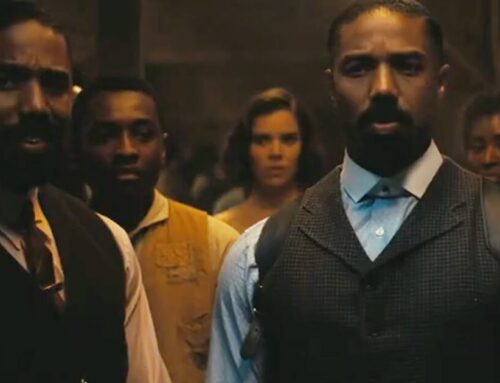It’s all in the title: PARASITE, a meticulously calibrated, razor sharp masterpiece of humor, horror, and social commentary from Korean writer/director Bong Joon-Ho.
“Parasite” which won the Palme d’Or at Cannes 2019– and the first Korean film to win that honor–subverts all your expectations as it innocently works its way into your psyche. The plot doesn’t just thicken, it grows organically, layer by layer as two families from different ends of the socio-economic strata intersect, becoming more dangerously entwined as this tale of class warfare unfolds.
The first salvo is fired when the teenage son Ki-woo Kim (Woo-sik Choi) of a poor family living in a filthy, insect-infested basement apartment, is offered the opportunity to pose as an English tutor for the teenage daughter of the ultra-wealthy Park family. We carefully follow Ki-woo as he makes his way up and out of his dingy circumstances and climbs the stairs to the immaculate, light-filled world of the Parks. As he penetrates the wall surrounding their home, an architectural fortress of pristine beauty, we begin to understand what the filmmaker (“Snowpiercer” “Okja”) is up to, and he’s going to have some fun crossing the line.
The Parks are an easy mark for the hardscrabble but savvy Kims lead by the extraordinary Kang-ho Song as Kim family patriarch Ki-taek. He’s had time and generations to witness and absorb the mannerisms, dress, speech, and vulnerabilities of the dominant social class, apparent to anyone who’s looking beneath the shiny surface. Though it might be easy to dismiss the Parks as wealthy twits, the filmmaker smartly cuts them some slack and we almost pity their blindness to what is festering below, but not before we’ve had a well-deserved laugh at their expense.
As the streetwise Ki-woo meets his new employer, Mrs. Park played with a perfect blend of oblivion and anxiety by the delicately-featured Yeo-jeong Jo, it’s clear who has the upper hand. Resentful and overlooked eldest daughter Da-hye is wise to her little brother Da-song’s charade of eccentricities which are indulged by his mother who thinks he is an artistic prodigy, and stroked by his arrogant, disconnected father (Sun-kyun Lee) as heir to the Park empire.
You won’t see what’s coming, but when it does, you’ll realize the map that has led you there was embedded in every shot. Scene by scene, Bong’s camera has scaled a scrupulously stratified world beginning in the bowels of Kim’s dank neighborhood, right down to its smell. In one pivotal scene, the camera catches Mr. Park’s disgust as he sniffs something disturbing to his sensibilities; when he holds his nose, we feel Mr. Kim’s bone deep humiliation at his poverty and impotence. Kim’s pain and resentment is further exaggerated, having breathed the rarified air wafting over every blade of grass, every sleek polished surface, every well-groomed hair on the Park family’s heads, right down to their pets who live better than the Kims ever have.
It’s the images of these suffocating slum alleyways alongside the arid hallways of the rich which not only mirror society’s hierarchies, but also the twists and turns of plot which screw you to your seat. We inevitably arrive at questions the filmmaker is hiding in plain sight: Who are the parasites? Who is living off whom? Bong’s powers of observation, his exquisite calculation of a scene’s rhythm, his masterful manipulation of tone, his actors’ very physicality, his close attention to details of character and class, all fuel an explosive, haunting climax. But it is this filmmaker’s exquisite humanity and social conscience that fuels our shock and sadness at a world increasingly riven, though we all live, closer than we realize, fates intertwined — on para-sites.
Do not miss “Parasite” which will be a huge story at the Oscars this year, and will no doubt be nominated in the best picture category, as one of the very best films of the year.






Leave A Comment
You must be logged in to post a comment.